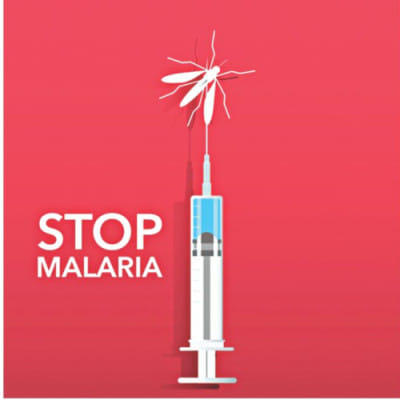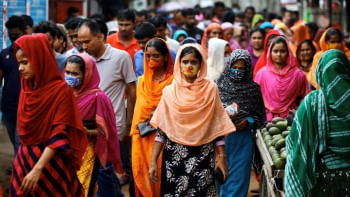Are you ready to roll back malaria?

Malaria is a preventable and treatable infectious disease. According to the World Health Organisation (WHO), malaria kills more than one million people each year, most of them in sub-Saharan Africa, where malaria is the leading cause of death for children under five. In the context of Bangladesh, even after giving emphasis on malaria control programme, about 2 million people in 15 different districts are under the threat of malaria. Specially, the Chittagong Hill Tracrs i.e. Rangamati, Bandarban and Khagrachari always remain in danger.
Malaria is typically transmitted through the bite of an infected female Anopheles mosquito. When a mosquito bites a person who already has malaria, it sucks up the person's blood, which contains the parasites. The infected mosquito carries the Plasmodium parasite in its saliva. When the mosquito bites its next victim, the parasites get inside the human body and travel to the liver where they mature. Now that person acts as a source of infection. That is how the disease spreads.
Symptoms
In a non-immune individual, symptoms of malaria may develop within ten days to four weeks following the infection. Malaria appears as an acute febrile illness. Common symptoms of malaria include shaking chills that can range from moderate to severe, high fever (104-1060F) that subsides by profuse sweating, headache, nausea, vomiting, abdominal pain, diarrhoea, bloody stools, anaemia and muscle pain. Even malaria can progress to severe illness, often leading to death when not treated quickly.
Who is at risk and when to call a doctor
Some population groups are at considerably higher risk of malaria and develop severe disease than others. These include infants, children under 5 years of age and pregnant women. An infected mother can also pass the disease to her baby at birth. This is known as congenital malaria. Malaria is transmitted by blood, so it can also be transmitted through an organ transplantation, blood transfusion and using of shared needles or syringes. Seeking medical care is extremely important if anyone experiences high fever while living in or travelling to an area that has a high chance of malaria.
Diagnosis and treatment
Besides classical symptoms, history of recent travelling in the endemic or hilly area and other possible exposures help to suspect malaria. Moreover, some physical findings of the patient (e.g. an enlarged spleen or liver) and result of blood test detecting malaria parasite can confirm malaria.
Malaria can be a life-threatening condition. The following may occur: swelling of the blood vessels of the brain or cerebral malaria; an accumulation of fluid in the lungs that causes breathing problems or pulmonary oedema; organ failure: kidneys, liver or spleen; anaemia due to the destruction of red blood cells etc. So it is important to get medical care as quickly as possible. Besides supportive care, depending on some factors e.g. parasite species, the severity of symptoms and drug resistance, the doctor administers the medication.
Prevention
There is no vaccine available to prevent malaria. Talk to your doctor if you are travelling to a hilly area where malaria is common or if you live in such an area. You may be prescribed medications to prevent the disease. These medications should be taken before, during and after your trip according to doctor advice. Besides this, most important thing is to create awareness among the people to prevent mosquito.
The writer is a General Physician. Email: [email protected]

 For all latest news, follow The Daily Star's Google News channel.
For all latest news, follow The Daily Star's Google News channel. 



Comments